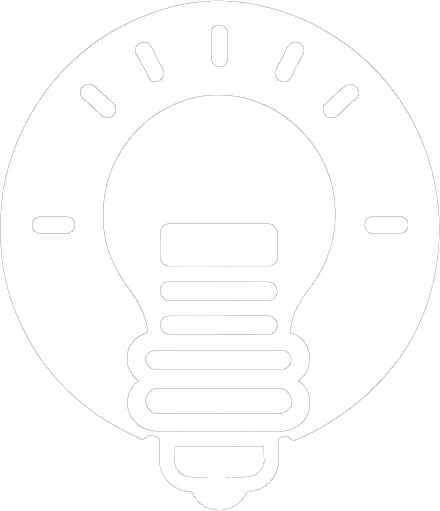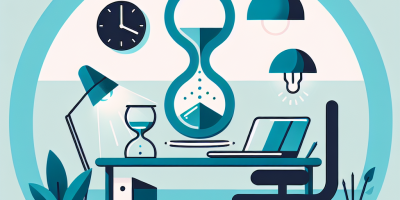The average American checks their phone 96 times per day, or twice every 20 minutes. However, we touch our phones up to 2,617 times per day and unlock our phones 150 times on average.
Checking our phones 96 times a day? That…a lot. But for freelancers, it’s probably more!
Our work naturally keeps us online, making it even harder to unplug.
But here’s the truth: we desperately need relief from the nonstop notifications, emails, and digital demands. All that screen time leaves us fried, scattered, and less creative.
A digital detox helps freelancers destress, increase productivity, and reconnect with our creative spark.
Great. But how the heck could a freelancer go tech-free???
Well, you’re in luck, in this article I’ll share 11 helpful tips to help freelancers successfully unplug.
Let’s do this.
What is a Digital Detox?
As freelancers, we rely heavily on technology to do our work. We’re constantly connected to devices for communication, research, content creation, and more. This can lead to digital overload.
A digital detox offers freelancers a chance to take a break and disconnect. It means intentionally limiting screen time to give your mind and body a chance to recharge.
Some key aspects of a digital detox for freelancers include:
-
Taking time completely off from devices, or only allowing yourself to use tech for essential work-related tasks
-
Avoiding distractions like social media, online shopping, gaming, and mindless browsing
-
Disconnecting fully during non-work hours and set times throughout the day
-
Making time for offline activities that spark creativity and joy like reading, writing, exercising, meditating, etc.
-
Replacing tech use with self-care activities, spending quality time with loved ones, getting out into nature
-
Setting boundaries with clients around availability to allow focused time off
The goal of a digital detox for freelancers is to combat burnout, boost productivity, tap into creativity, and improve work-life balance. It provides a way to reset your relationship with technology and be more focused.
The Best Digital Detox Tips To Unplug
1. List Your Why
Before you begin your digital detox, it’s essential to identify your ‘why.’
This step is especially important when dealing with tasks that require strong willpower and discipline.
I want you to take a piece of paper and list all the reasons motivating your digital detox: reduced stress, improved mental health, and more time for hobbies. Next, consider how this detox can boost your freelance productivity.
As freelancers, we heavily rely on digital devices, and stepping away can make us feel unproductive and guilty.
So, think about how this detox can increase your productivity, fuel creativity, and promote better health and calmness. Address your ‘why’ to enhance your freelance productivity!
This will help you stay committed and disciplined when you start feeling some “electronic withdrawal”.
2. Take Baby Steps
You can’t go from not walking to suddenly sprinting, progress requires baby steps.
Small achievable steps that will help you ease into your first digital detox and build confidence within yourself.
You can start by just adjusting your morning and night routine!
Here are a few baby-step ideas:
-
Don’t use your phone two hours before going to bed.
-
Reduce your screen time by 10%
-
Don’t allow any smartphones or laptops in your room
-
Carve out a creative block of 2-3 hours a day where you allow yourself to do something you love without using digital devices.
-
Delete one of your personal social media apps like Facebook or Instagram
Apply one of these baby steps or create your own to slowly start weaning away from the digital world.
3. Set Clear Boundaries
As a freelancer, it can be tempting to always be available and connected. However, this can quickly lead to burnout.
That’s why it’s essential to set clear boundaries with clients, bosses, family, and even yourself during your detox.
Before you begin, communicate with clients that you’ll have limited availability for a set period. Block off “offline” time in your calendar. Set your phone to airplane mode and leave it in another room while you work.
When at home, make a rule that no phones are allowed at the dinner table. Let your loved ones know you’ll be minimizing distractions for better focus. Also, set a cutoff time in the evenings when you stop checking emails.
Having distinct boundaries will prevent you from mindlessly reaching for your phone out of habit. And knowing others are aware of your detox will make it easier to disconnect guilt-free.
Setting rules and expectations will enable you to fully reap the benefits of your digital detox as a freelancer. So be clear on your boundaries before you begin!
4. Allow Only Important Notifications

A common trigger for mindlessly picking up your phone or laptop is notifications popping up. The constant dings and buzzes from social media and apps can be distracting and stressful.
During your digital detox, be very selective with the notifications you permit on your smartphone and other devices. Social media notifications are typically non-essential – turn those off completely.
Only allow notifications from direct messages, texts, or emails that are crucial for your work and relationships. You can also set your phone to silent and only vibrate for calls and priority notifications.
By limiting notifications, you remove the conditioned response to constantly check your devices. Out of sight (or sound), out of mind. Allowing only important alerts will support your detox goals of being more present, focused, and less stressed as a freelancer.
5. Do Something Hard Each Day
A digital detox will likely push you out of your comfort zone. Embrace this as an opportunity for growth.
Challenge yourself to do one difficult thing each day, however small. Maybe it’s having a tough conversation you’ve put off, experimenting with cold therapy, consistently working out, eating healthy, or learning a new skill.
By constantly pushing your limits during the detox period, you build mental strength and self-confidence. This will empower you to stay disciplined when offline boredom or restlessness strikes.
Doing daily hard things also provides a sense of accomplishment from testing yourself. You’ll discover you’re capable of more than you think without constant digital stimulation.
6. Find Things You Love

A digital detox creates space to explore hobbies and activities you’re passionate about. This is an opportunity to clear your mind and get those creative juices flowing.
Make a list of things you’ve been wanting to try or revisit. This could include reading, writing, hitting the gym, going to the spa, going to a sauna, painting, playing music, baking, gardening, hiking, yoga, or any mindful activity that supports your mental health and physical health.
Schedule time to immerse yourself in the things you love. Not only will this make your detox more enjoyable, but you may also discover new passions.
Bringing more mindfulness to how you spend your free time can be incredibly rewarding. A digital detox allows you to reconnect with the activities and hobbies that light you up.
7. Create a Plan Pre and Post-Detox
How are you going to successfully do this challenge? How are you not going to slip back into old habits when you start using electronic devices again?
These are all questions you get to consider!
Before starting, outline how you’ll fill your time offline and what rules you’ll follow to stay on track. Tell friends and family about your detox for accountability.
Once the detox period ends, thoughtfully reintroduce digital media into your life. Consider the benefits to your health and well-being that you get from unplugging.
Schedule future breaks to detox again. Be mindful and intentional with your digital usage going forward.
8. Consider Getting A Work Device
To boost your productivity during your digital detox, think about investing in a dedicated work device.
Having a laptop or phone solely for freelance tasks can significantly reduce the temptation to check personal apps and social media.
I understand that not everyone can easily afford an additional device, and for most, it might not even be necessary.
However, if your budget allows for it, it can be a valuable step to help you disconnect from your primary device.
This allows you to be present with family or take time for yourself without distractions.
9. App and Notification Blockers
To help you disconnect from the internet and social media for a period, consider using an app and notification blockers.
These tools allow you to limit distractions by restricting certain sites or muting alerts during set times.
This can curb mindless browsing and combat digital addiction tendencies.
Here are some of my favorite ones:
-
Freedom Forest
-
App Block
-
Flipd
-
RescueTime
Using one provides extra motivation to stay focused and avoid getting sucked back into endless scrolling, notifications, and distractions.
With the right app or site blocker, you can effectively detach from the digital world for your detox.
10 . Reward Yourself

To stay motivated during your digital detox, set a goal and timeline then reward yourself when successful.
For example, you could set a goal to have a successful digital detox for one week. Once accomplished, treat yourself to something you enjoy like a massage, a nice meal out, or tickets to an event.
Having an incentive helps you stick to your detox commitment. And a sense of celebration once you achieve your goal will make it a positive experience.
So decide on a realistic timeframe, commit to a detox period, and then pick out some fun rewards for staying on track that you can look forward to.
You’ve earned it!
11. Outsource Tasks
To reduce the time you spend online and need to disconnect, consider outsourcing some work tasks.
This could include hiring a virtual assistant for admin work, recruiting a social media manager, or partnering with a freelancer for project collaboration.
Outsourcing relieves you of time spent on non-essential computer-based tasks. And it provides more opportunities to step away and focus on high-priority offline work.
Delegating certain digital responsibilities allows for better work-life balance. You get your availability back while ensuring things still get done.
During your detox, take stock of tasks that can be outsourced to decrease screen time and enjoy more freedom.
Rock Your Digital Detox (and Love It!)
A digital detox can feel intimidating at first, but take it step-by-step and you’ll reap the rewards. Start small by turning off a few notifications or leaving your phone behind during part of the day.
Build up to longer breaks. Stay focused on the reasons why you’re doing this and the benefits you want to achieve. And don’t forget to reward yourself along the way – you got this! Taking time to intentionally unplug will leave you feeling refreshed, refocused, and ready to bring your best self to your freelance work and life. So be brave and press pause on the digital noise – your mind and body will thank you.
Digital Detox Tips For Freelancers: FAQ
Why should freelancers consider a digital detox?
Freelancers often spend a lot of time working on their computers and devices, which can lead to burnout, creative block, and decreased productivity. Taking a break from technology can help you be more productive and avoid digital overload. Especially if they are spending lots of time on devices outside of work as well.
How long should a digital detox be?
The length of a digital detox can vary depending on your preferences and needs. It can be as short as a few hours or as long as a few weeks. Start with a shorter detox and gradually increase the duration if you find it beneficial.
What are the benefits of doing a digital detox?
A digital detox is a great way to give your mind and body a break from the constant stimulation of technology. It can help reduce stress, reduce anxiety and depression, improve mental clarity, increase creativity, boost productivity, and enhance overall well-being.
What are some signs that I need a digital detox?
If you find yourself spending too much time on your devices, feeling anxious or overwhelmed when you’re not using technology, experiencing difficulty focusing, or noticing a decline in your overall well-being, it may be time for a digital detox.
What are some signs that I need a digital detox?
A: If you find yourself spending too much time on your devices, feeling anxious or overwhelmed when you’re not using technology, experiencing difficulty focusing, or noticing a decline in your overall well-being, it may be time for a digital detox.





Leave a Reply